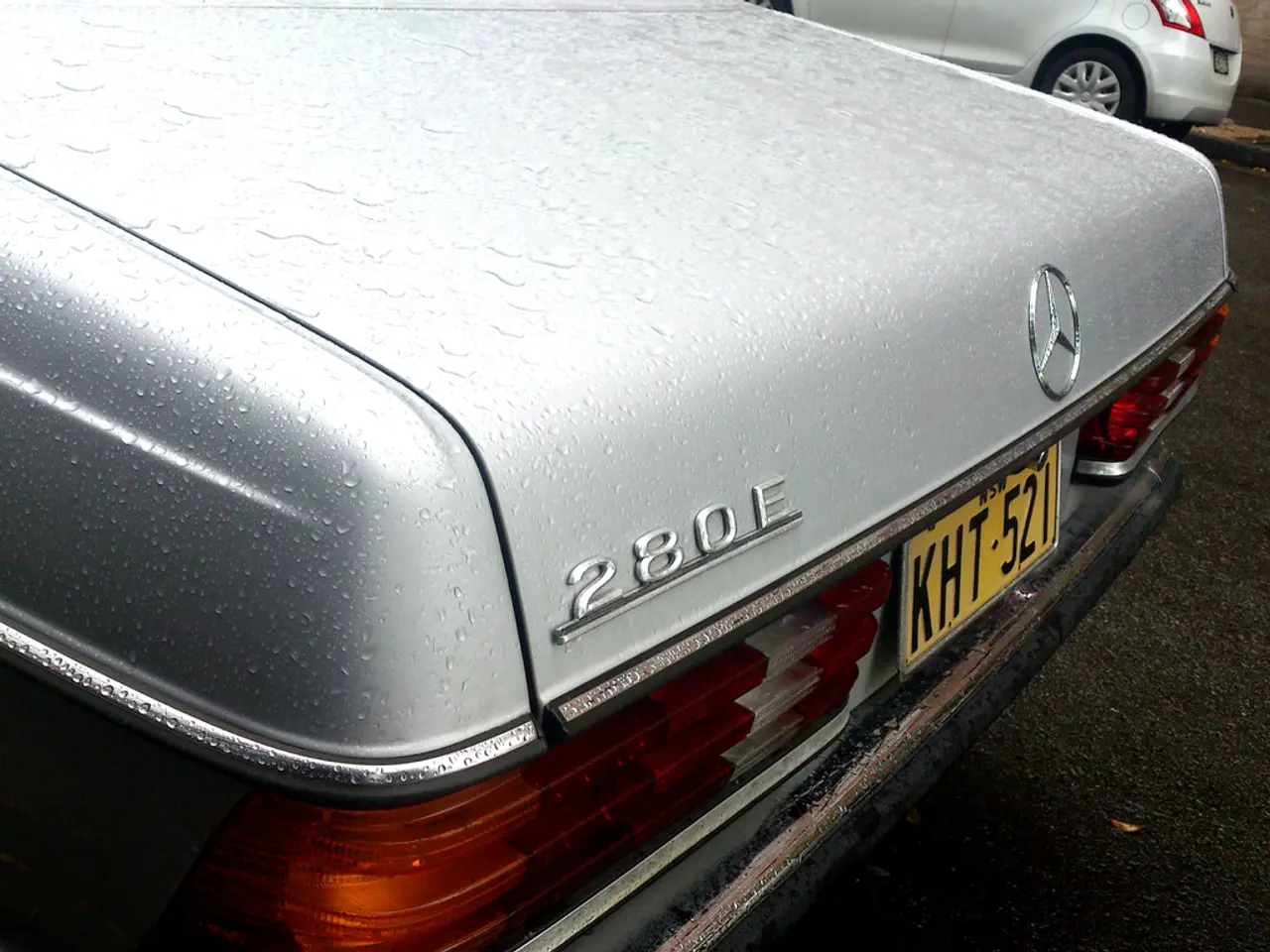Mercedes leader believes exhaustion is a significant error
In a bold move, the Mercedes-Benz CEO, Ola Källenius, has spoken out against the European Union's (EU) planned ban on new cars with internal combustion engines (ICE) from 2035. Källenius, who is also the president of the European Automakers Association (ACEA), argues that the policy lacks realism and risks collapsing the European auto industry.
The EU Commission is not backing down from the ban, but Källenius believes a more technology-neutral approach is necessary to accelerate electric vehicle (EV) adoption. He advocates for tax incentives and affordable public charging stations to boost EV sales, rather than an outright combustion ban.
Källenius highlights that electric cars currently represent only 17.5% of European sales, far below the 100% target for 2035. He fears that consumers may delay purchases and then buy petrol or diesel cars en masse before the ban takes effect, undermining environmental goals and destabilizing the market.
As president of ACEA, Källenius stresses that decisions must consider economic impacts and market realities rather than ideological targets. He is hopeful that an upcoming EU review might lead to postponement of the ban or introduce more flexibility for combustion engine vehicles to avoid damaging Europe's domestic car industry amid competitive pressures from cheaper Chinese EVs.
The planned ban on ICE cars is causing intense pressure in the German automotive industry, with car manufacturing being a tough business as it is. The industry is also facing challenges such as high US tariffs and persistent consumer reluctance. Källenius warns that driving full speed into the current situation could lead to a collision.
Mercedes-Benz is not sitting idle in the face of these challenges. The company is pursuing a large product launch strategy with over 30 new models by 2027, including an electric version of its popular GLC SUV. This underscores the company's commitment to electrification while advocating for flexibility and gradual transition measures by policymakers.
In a statement to the "Handelsblatt," Källenius said, "That's no good for the climate." In reference to the planned ban on new cars with ICE, he emphasized the need for a technology-neutral approach to decarbonization. If no new cars with combustion engines are allowed to be registered, the European car market could collapse, according to Källenius.
The EU's climate protection regulations for the automotive industry will be reviewed in the second half of the year. It remains to be seen whether policymakers will heed Källenius' advice and take a more flexible approach to the combustion engine ban.
- Källenius, in his role as president of ACEA, advocates for a technology-neutral approach in the EU's climate protection regulations for the automotive industry, citing the potential collapse of the European car market if no new cars with combustion engines are registered.
- Alongside his push for a more flexible policy, Mercedes-Benz, under Källenius' leadership, is actively investing in electric vehicle technology, planning to launch over 30 new models by 2027, including an electric version of its popular GLC SUV.
- This technology-neutral approach, as suggested by Källenius, could potentially encourage vocational training programs in environmental-science, science, and technology, benefiting the industry and the community at large, as the shift towards sustainable and eco-friendly transportation becomes increasingly important.




